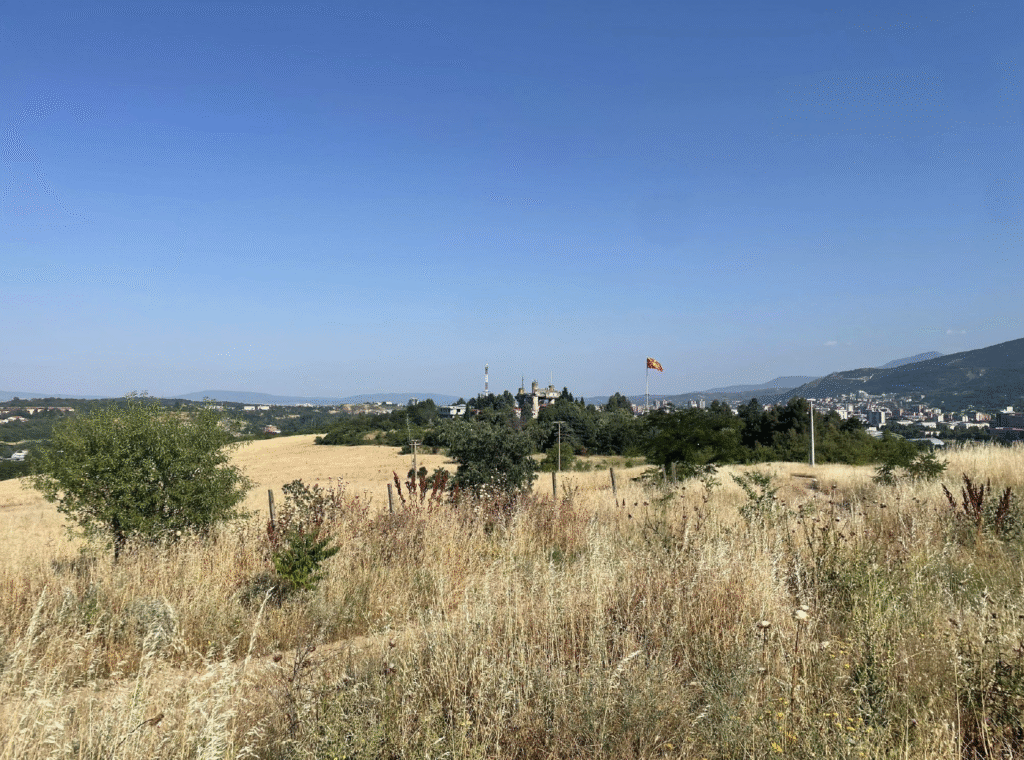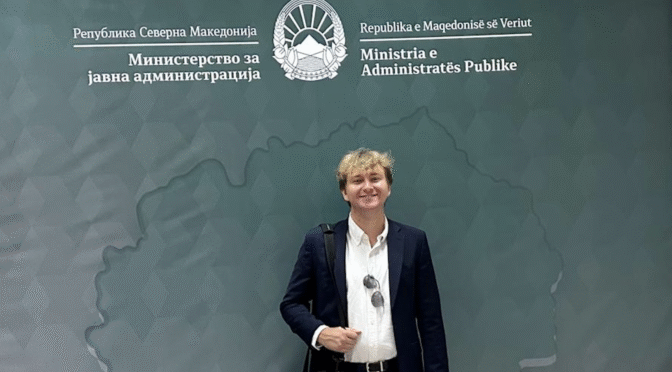By Alexander Dominiak, Graduate of the UT International Relations and Global Studies Department
This summer I had the privilege of working with the National Democratic Institute’s office in Skopje, North Macedonia, in a program that has spurred my professional and personal development. I was fortunate enough to be placed with the Integrity Driven Communities project, one of two long-term NDI projects (along with the Parliamentary Support Program), that aims to strengthen anti-corruption measures at the local level. As a recent graduate from the University of Texas at Austin with a degree in International Relations and Global Studies, this experience has allowed me to witness firsthand how international collaboration in good governance procedures occurs at the ground level and how that collaboration has tangible effects on the lives of everyday citizens in the country. It’s inspiring to see the passion with which my colleagues and fellow interns work to strengthen democratic governance in the country.
My work has been dynamic and hands-on, and allowed me to effectively contribute to the incredible work being done by NDI in North Macedonia. My first introduction to this hands-on approach to democracy building was attending the “caravans” organized by the National Democratic Institute in partnership with various other non-governmental organizations. These “caravans” involve having members of the Assembly of the Republic of North Macedonia meet directly with their respective constituents in a relaxed and informal setting where everyday citizens are able to voice their opinions and concerns about the work of the government.
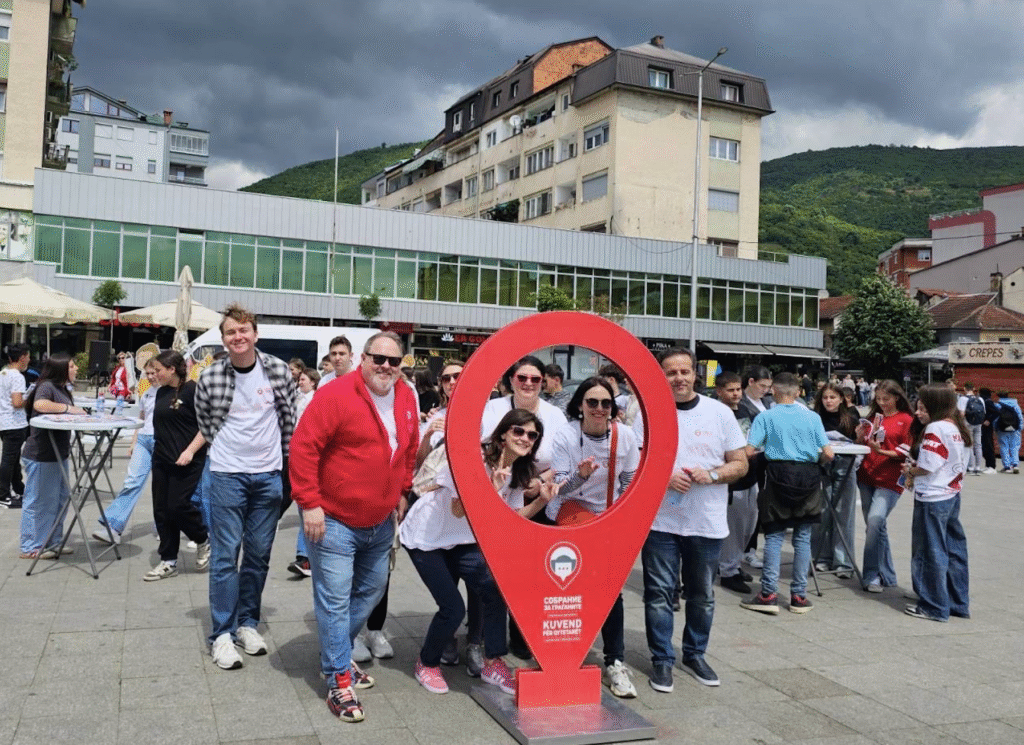
This “meet you where you are” approach of the caravans strengthens the bonds between everyday citizens and their government, promoting the idea that getting politically involved as a citizen can and does have resounding effects on the country’s political landscape. The word “caravan” is used as the events occur in multiple cities and towns across the country, which provided me with a great opportunity to explore parts of North Macedonia that might have otherwise remained unknown to me. The caravans also place a particular emphasis on education, for both younger and older citizens alike, which increased my exposure to the culture and allowed me to interact with residents that I would not have had the opportunity to speak with and learn from.
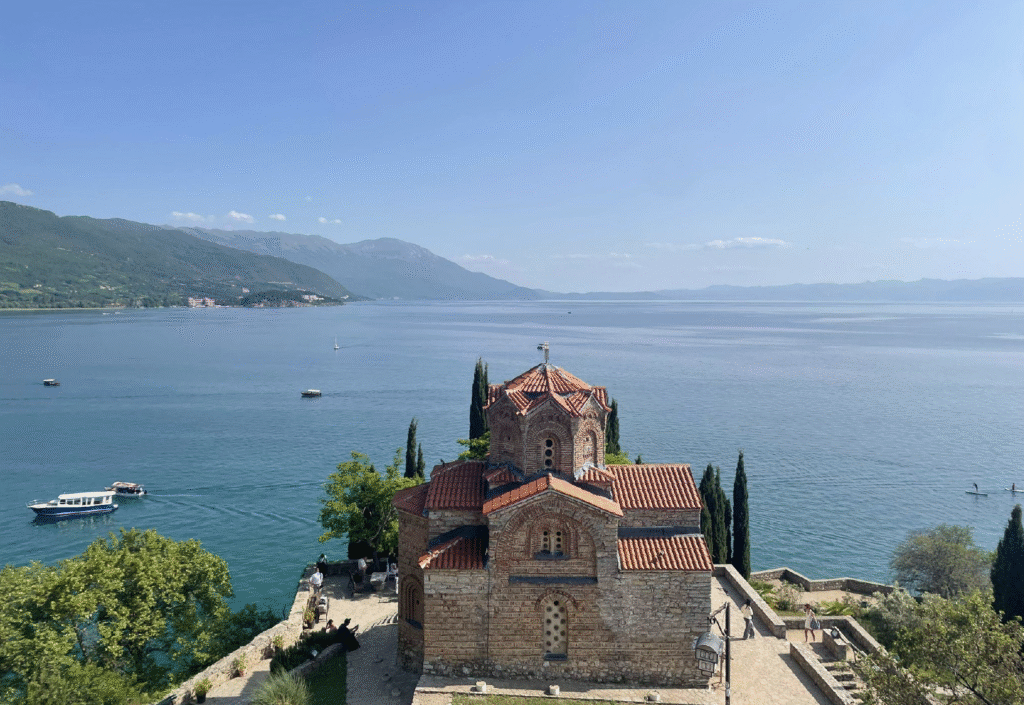
My work for the Integrity Driven Communities project likewise has allowed me to contribute to the work of strengthening anti-corruption measures at the local level. The independent research I am conducting (in collaboration with fellow intern and UT student Arion Moore) has strengthened my analytical thinking and developed my research skills beyond a purely academic context. I have no doubt that this experience conducting research in a non-academic, professional setting will remain a huge asset moving forward in my career.
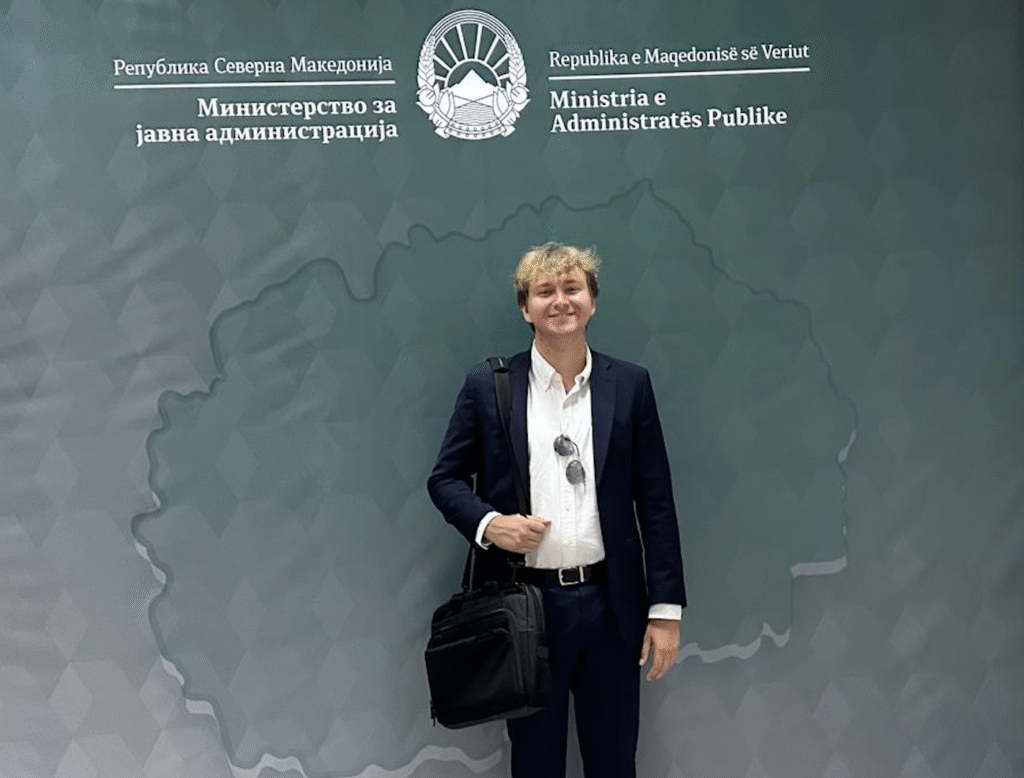
Beyond the work, Skopje is a hidden gem for food, culture, people, and everything else you could want. The food (often my favorite part about exploring new places) is fresh, rich, and delicious, with a wide variety of dishes that I had to see to believe. Likewise, the city is vibrant in the summertime with cafes being filled at all times of day and (free!) cultural events taking place almost every night. Skopje is also a great access point to other hidden gems across the region, such as the historical town of Ohrid, located on the UNESCO-protected lake of the same name, and Matka Canyon, which offers hiking only 25 minutes away from the city.
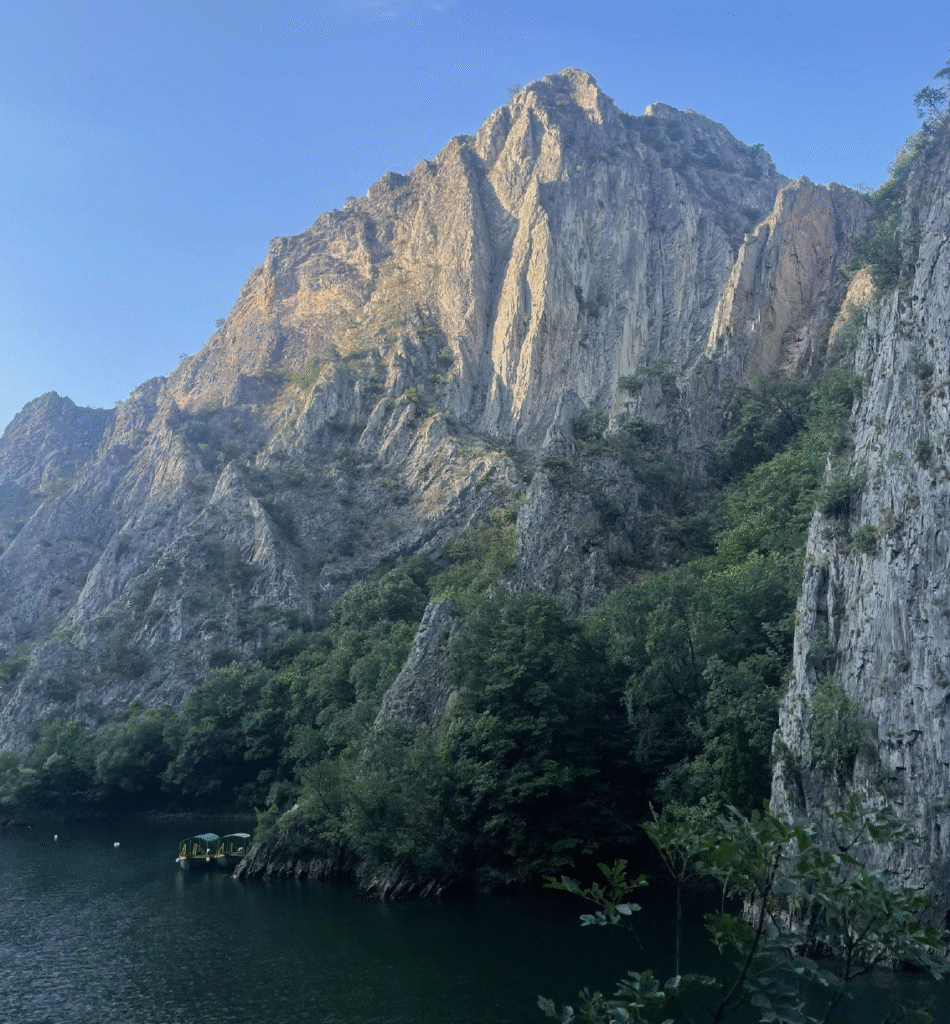
Perhaps my favorite aspect of the city is its diversity of architecture. The city features a mix of Ottoman, Baroque, and brutalist architecture that is guaranteed to catch the eye. Skopje’s old bazaar, the largest Ottoman bazaar in the entire world, with its winding cobblestone streets and variety of Turkish and other Balkan cuisine, makes you feel as though you’re in an entirely different country. My personal favorite is Skopje’s world-renowned brutalist architecture, with buildings such as the old post office located in the center of the city and the meteorological institute located on the outskirts. Both challenge traditional notions of what Brutalism entails through their innovative and unique designs. Though my time here is unfortunately coming to its end at the time of writing, I have no doubt I will be back to explore more of what the city has to offer.
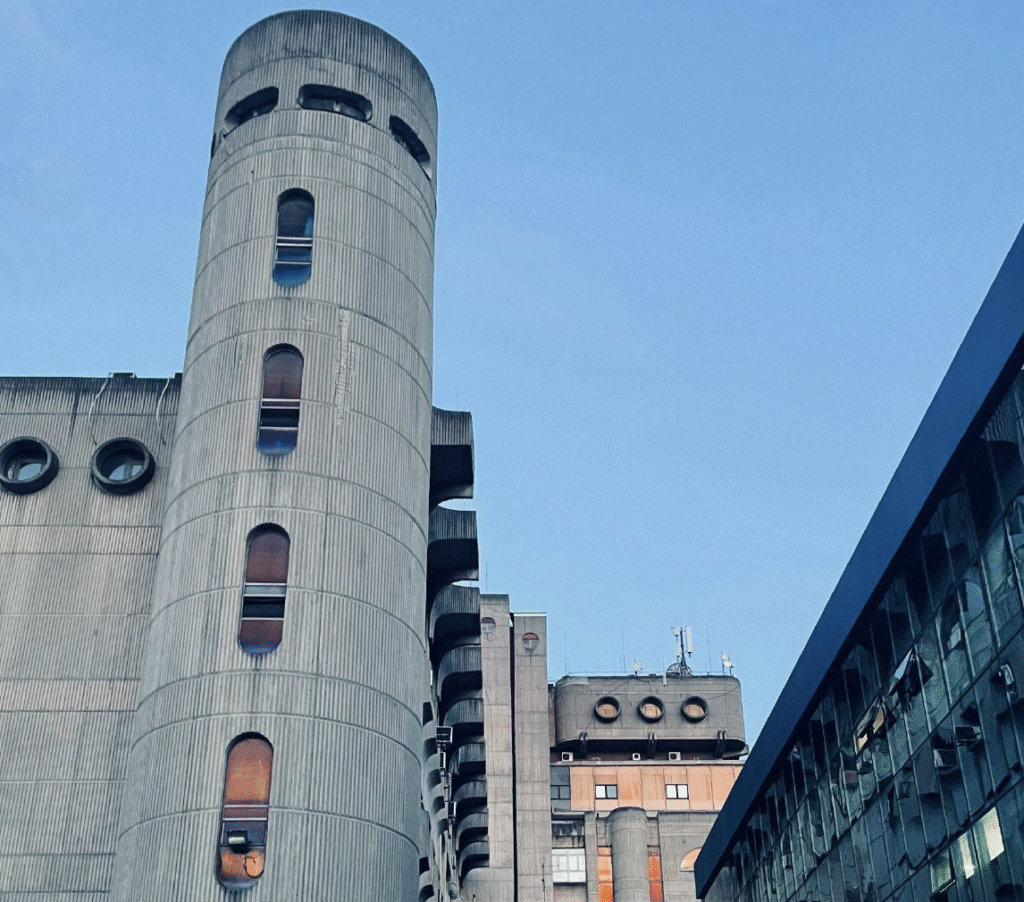
Another highlight of my time in the UT Embedded Scholars program was our trip to Kosovo. Kosovo, as a small and relatively new country, was not a place I originally anticipated visiting when I found out I was going to the Balkans; however, thanks to the efforts of Dr. Moran and her colleagues, a trip was organized to Kosovo to meet with government institutions and non-governmental organizations operating in the country. This included a meeting with the Constitutional Court of Kosovo, the highest court in the country and the youngest constitutional court in the entire world! It was fascinating to hear from court justices and court staff alike how the court has adapted to the country’s unique circumstances.
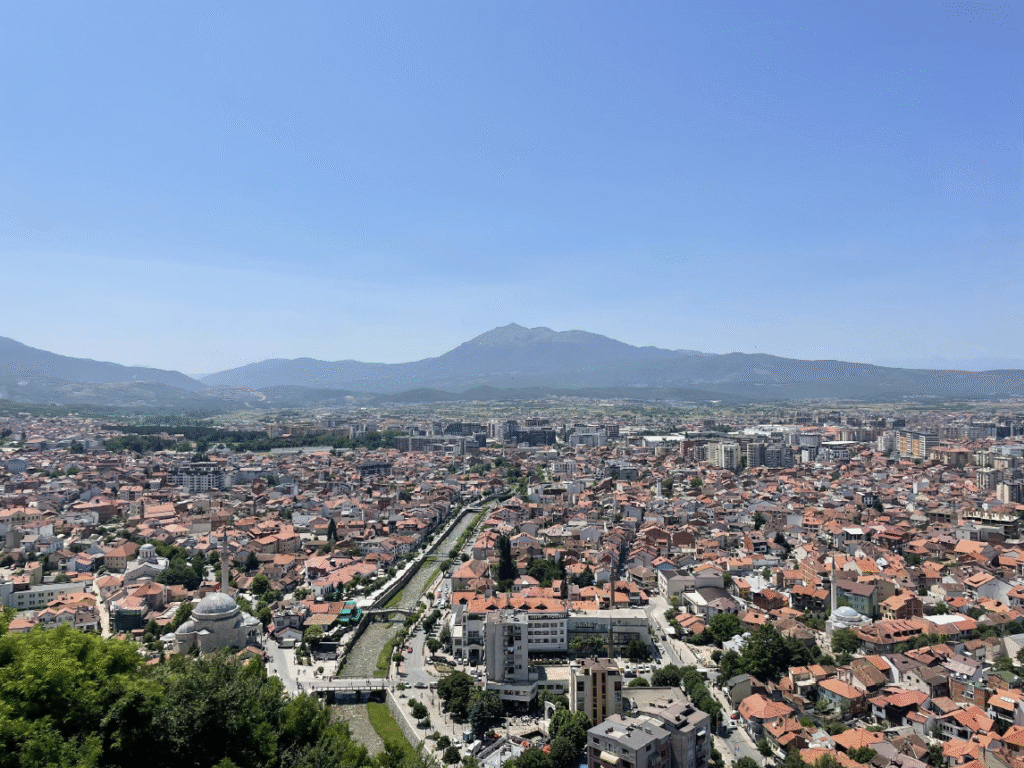
Perhaps my favorite meeting organized by Dr. Moran was the visit to the Kosovo Rehabilitation Center for Torture Victims, whose director is currently nominated for a Nobel Peace Prize. This non-profit institute has focused on providing support and advocacy services for those who experienced violence during the Kosovo War. It was inspiring to hear the important and transformational work the organization has done to reduce social stigma surrounding those experiences of violence, and how their work reached people across the country.
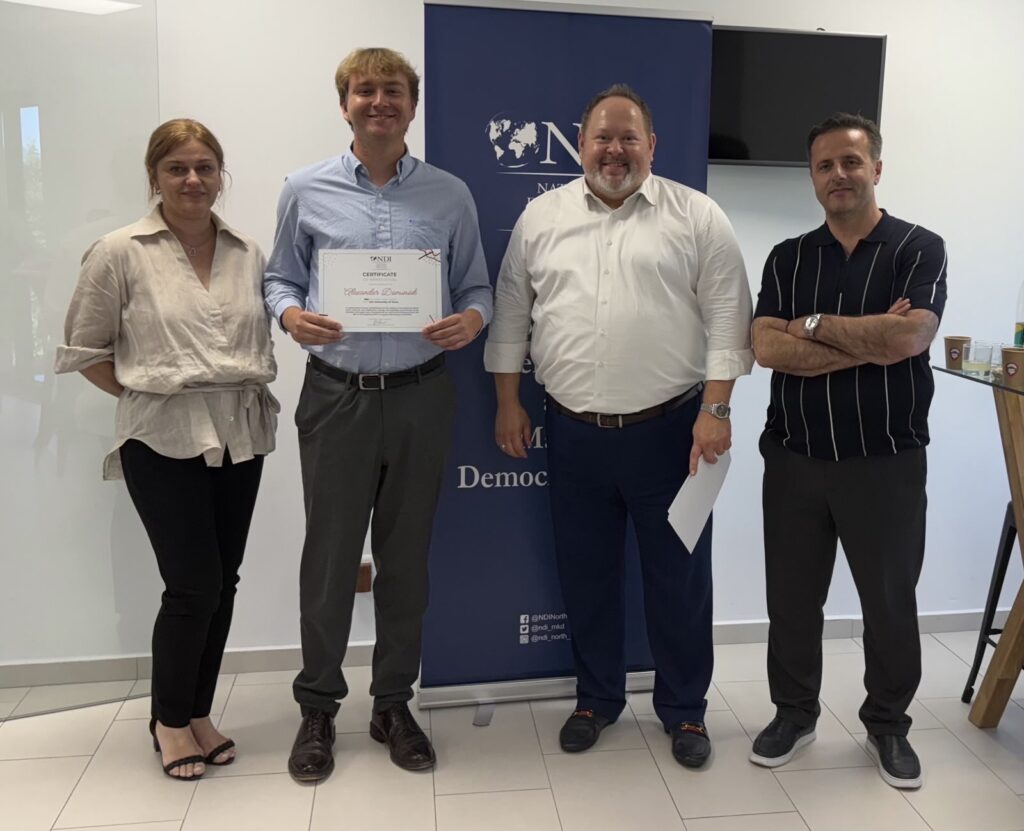
It’s difficult to overstate how wonderful my experience with the UT Embedded Scholars and the National Democratic Institute has been. Though I was already planning to pursue a career in international relations, the rewarding work I have had the privilege of taking part in has further strengthened my resolve to work in the field. The experience was relatively short, taking place over a span of six weeks, but I have no doubt grown more professionally and personally in this short time span than through many of my other endeavors. Special thanks to Dr. Moran, Mr. Heaslet, and all the folks at the National Democratic Institute who made this experience possible.
